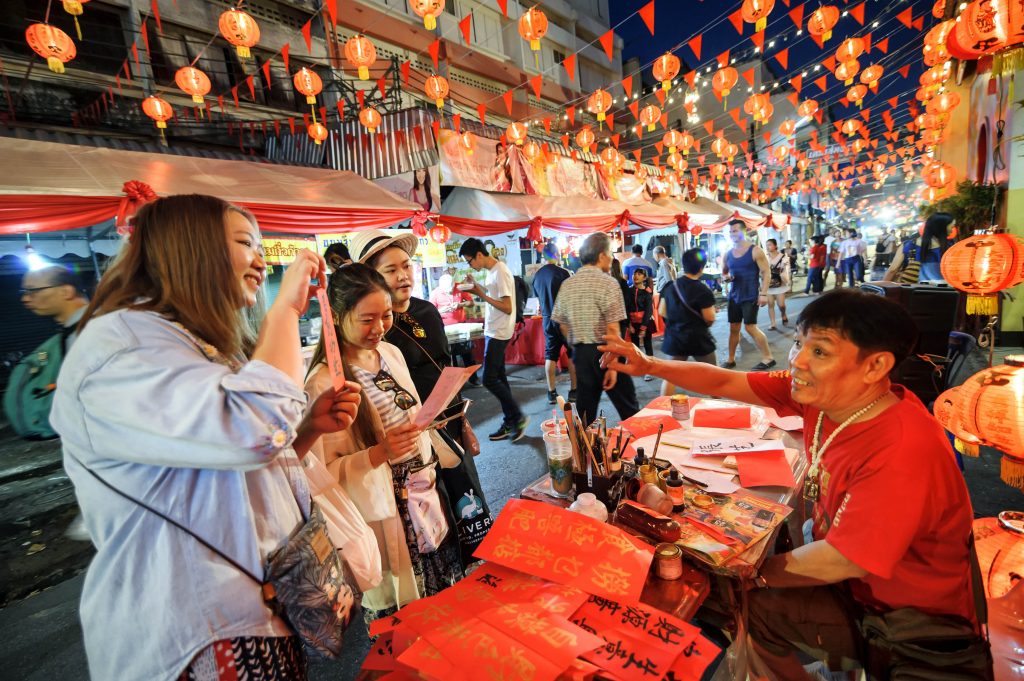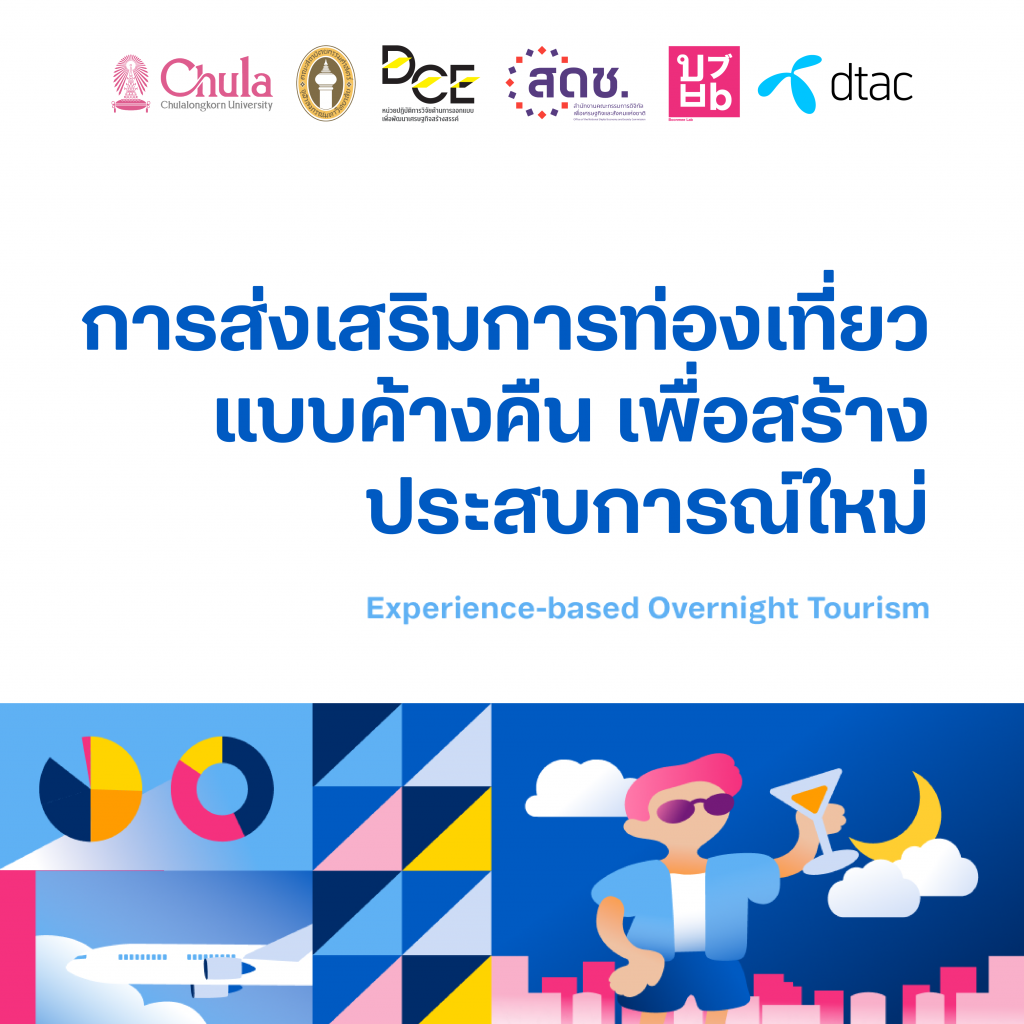Another tourism-promotion strategy that came out of the study on movement patterns and concentration of Thai tourists during COVID-19 outbreak based on mobility data focuses on developing experience-based overnight tourism.
Asst. Prof. Dr. Nattapong Punnoi, Urban and Regional Planning Department, Faculty of Architecture, Chulalongkorn University, said, “Overnight stay is an indicator of tourism success. Cities with many overnight tourists are considered successful because overnight tourism can generate higher revenue and economic value than same-day tourism.”

Overnight tourism also creates higher positive social impacts as tourists have more opportunities to interact and engage with local communities. The longer the visit, the higher chance they are exposed to a cultural exchange experience. The aim of experience-based overnight tourism development is to build a “fanbase” of a city, which leads to quality tourism and repeat visits. Also, tourists will continue to purchase products from those areas even after they have returned to their hometown. This is the importance of experience-based overnight tourism development and how it can pave way for sustainable tourism economy.
“Tourism can generate a positive economic and social impact to local community, especially in regards to experiences and cultural exchanges,” Asst. Prof. Dr. Nattapong added.
Three Overnight-Tourism Trends
The study highlights three important trends in developing experience-based overnight tourism.
- Unusual accommodation types, such as car camping, glamping, and tree houses.
- On-site activities that are unique, such as cooking class by a famous chef, morning yoga class, recreational fisheries, and produce picking.
- Activities that allow tourists to engage with the local community. Hotels may collaborate with local communities in arranging activities that allow tourists to learn more about their culture. Once Again Hostel on Rattanakosin Island, for example, works with the neighboring communities in conducting a historical tour around its neighborhood. The Tamarind Villagein Chiang Mai, meanwhile, offers a local temple tour.
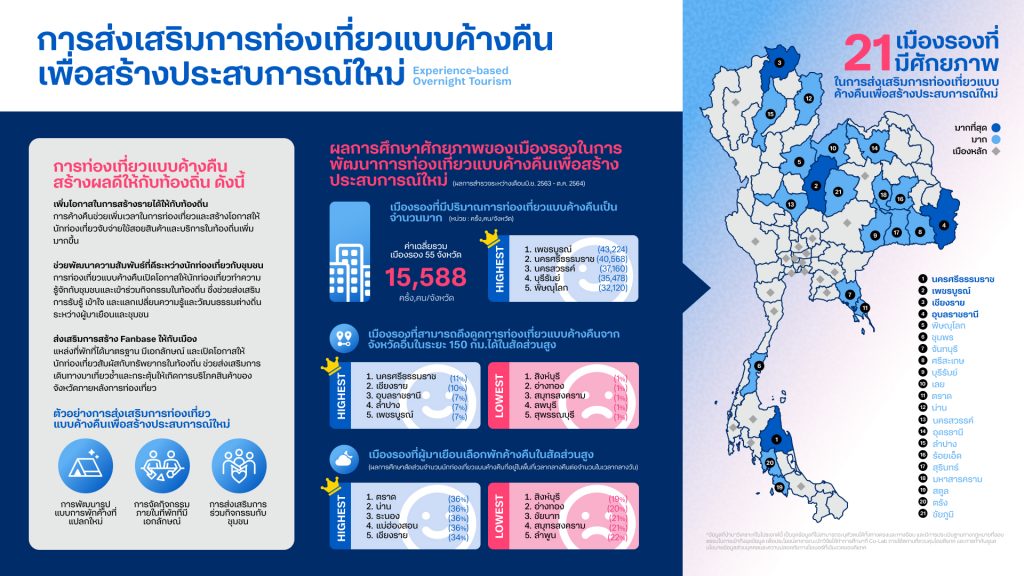
Creating new experiences for visitors is a core element of overnight trips. Taking the cue, Airbnb has introduced Airbnb experiences where tourists can immerse themselves in “one-of-a-kind activities organized by local experts”, while the hosts can organize workshops, such as bread baking, leather crafts, and meditation, to share their knowledge and skills with visitors.
With their various differences, second-tier provinces vary in their ability to attract overnight tourists. The research team analyzed the mobility data between June 2020 and Oct 2021 to measure each province’s potential to develop experience-based overnight tourism through three indicators.
Day time VS Night time

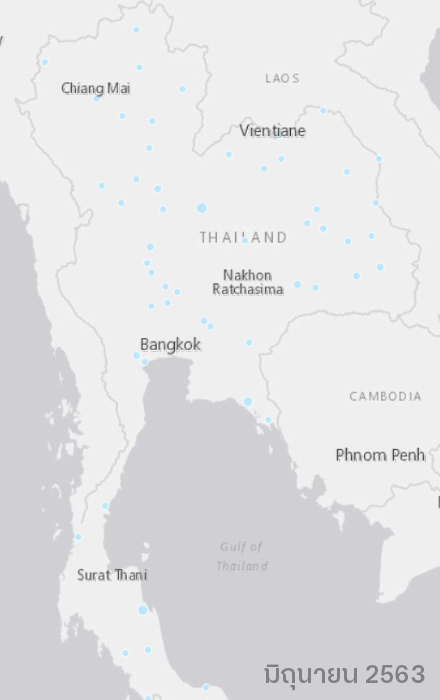
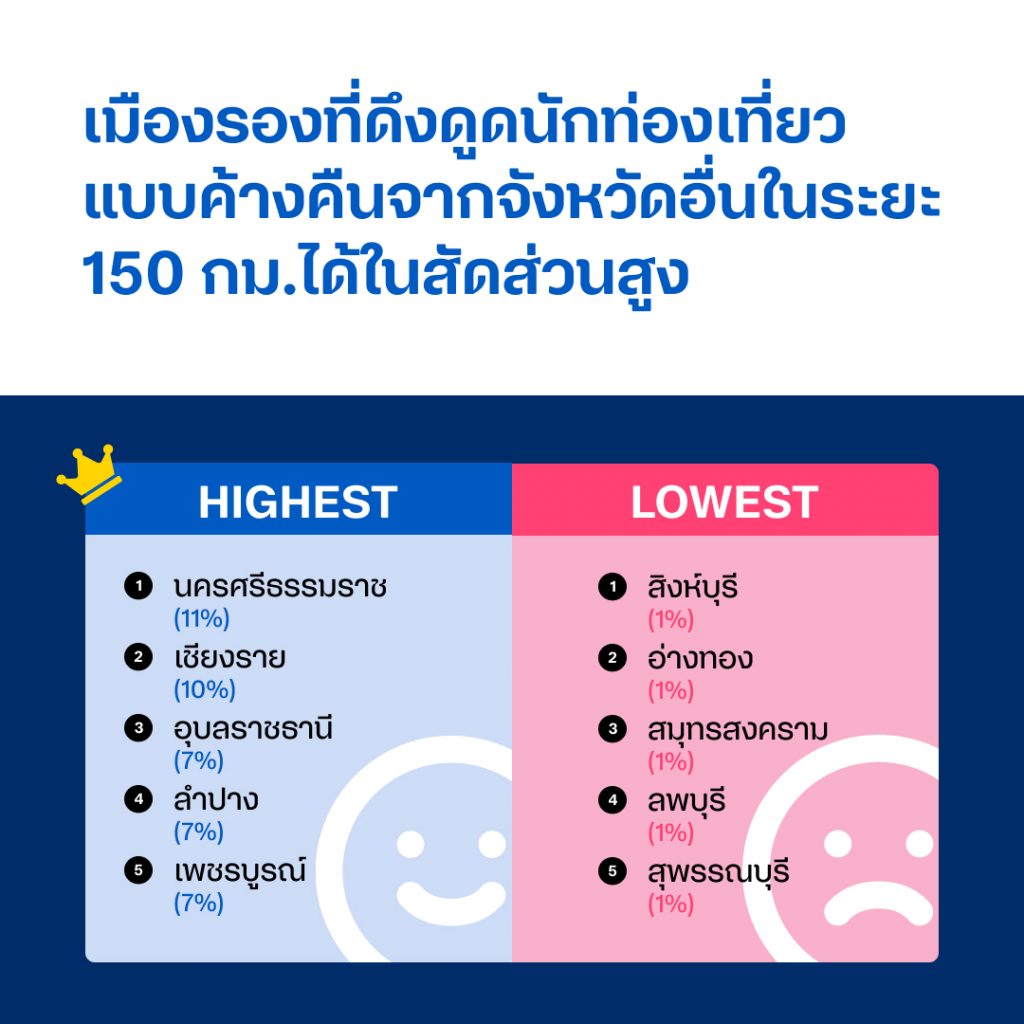
With these three indicators combined, they highlight 21 second-tier provinces with potential to develop experience-based overnight tourism. The list includes Nakhon Si Thammarat, Phetchabun, Chiang Rai, Ubon Ratchathani, Phitsanulok, Chumphon, Chanthaburi, Si Sa Ket, Buri Ram, Loei, Trat, Nan, Nakhon Sawan, Udon Thani, Lampang, Roi Et, Surin, Maha Sarakham, Satun, Trang, and Chaiyaphum, respectively.
“The analysis of the three indicators and the composite index will provide a guideline on how each province can design tailored tourism strategy for maximum efficiency,” Asst. Prof. Dr. Nattapong said.
For example, provinces with high ability to attract tourists from neighboring provinces can develop a strategy to generate repeat visitors through local activities, such as seasonal fruit planting and harvesting, handicraft workshops, and sports tournaments.
For provinces with a high number of same-day visitors but are not popular as an overnight destination, nighttime activities can be developed to attract more overnight tourists, such as light and sound shows, night sky tours, and nighttime adventures.
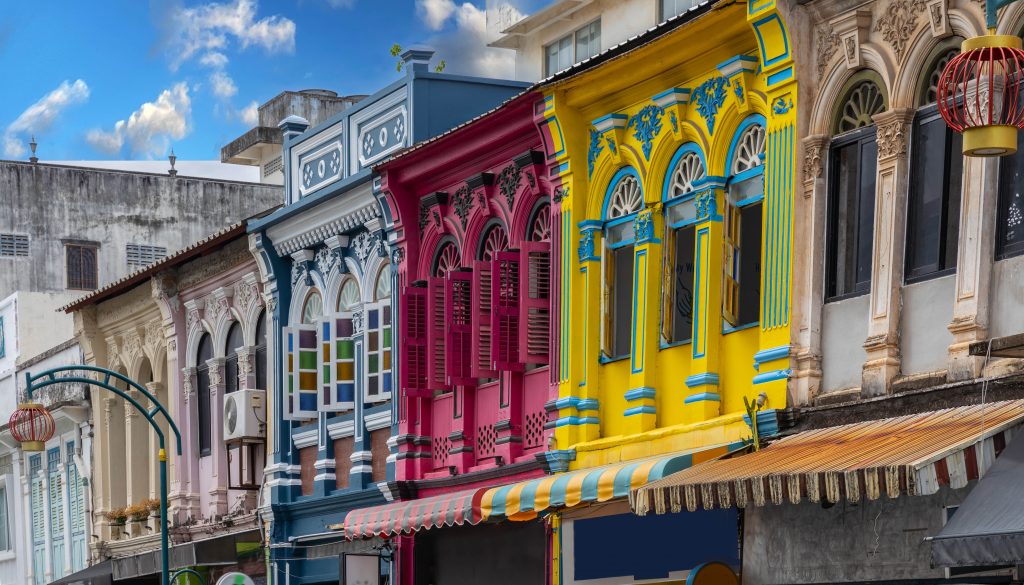
Local Identity and Quality Accommodation
The research from Chulalongkorn University’s Faculty of Architecture also suggests that top four factors that encourage experience-based tourism are scenery, food, products, and activities that embody the local identity. In choosing an accommodation, people also consider factors like quality, closeness to nature, privacy, and service attentiveness. Thus, the cooperation among local authorities, private sector and communities is required in developing experience-based overnight tourism to ensure balanced development. They need to work to together to preserve natural resources and local culture as well as motivate local business owners and communities to create quality products and services that truly reflect local values.
“The collaborative efforts between the government, private sector, and local communities in preserving local identity as well as developing tourism activities, products, services, and accommodations to meet a high standard, while also minimizing negative impact towards communities and the environment are key to attracting overnight tourists and increasing their length of stay. It will also pave way for sustainable tourism development in second-tier provinces,” Asst. Prof. Dr. Nattapong concluded.
